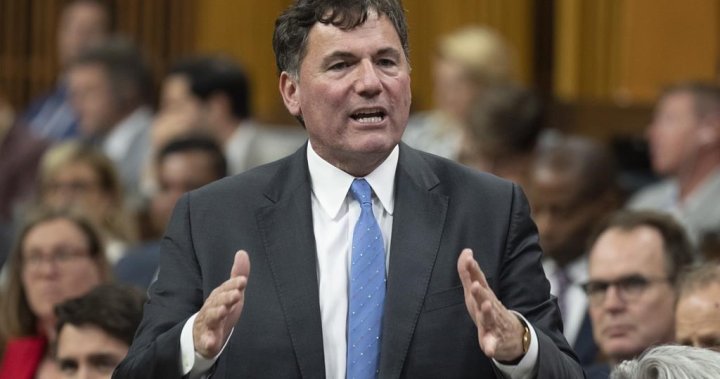
Details on the “next generation” of federal infrastructure funding programs are on track to be released this fall, Infrastructure Minister Dominic LeBlanc said after meeting with his provincial and territorial counterparts in British Columbia.
LeBlanc said Wednesday that the conversations were a “very positive step in making sure that those programs are the right ones for the whole country, that we have long-term, predictable funding and the flexibility to respond to different priorities.”
That’s after Canada’s premiers wrote a letter to Prime Minister Justin Trudeau last week pushing for more information on what would replace the $33-billion Investing in Canada Infrastructure Program, which has been fully allocated as of March.
The letter said provinces, territories and communities are facing unprecedented cost pressures on existing projects, while the absence of an announcement in this year’s federal budget has created uncertainty around future infrastructure funding.

LeBlanc said Ottawa is “happy to work with provinces and territories as best as we can” to manage the increasing costs of existing projects.
Future programs will need to have “shock absorbers” built into the funding formula, he said at a news conference in Whistler, B.C. on Wednesday.
To be successful, the premiers’ letter said future programs would need to maximize both flexibility and predictability by delivering funding on a “base plus per capita basis,” meaning the amount would increase for more populous provinces.
It would also need to support provinces and territories by addressing the “full spectrum” of infrastructure challenges unique to each jurisdiction, including “significant” infrastructure gaps in Arctic and northern regions, the letter said.
While the provinces and territories await details on future funding, LeBlanc said hundreds of projects are in the process of moving ahead through existing channels.

“It’s not as if we’re stalled or out of gas or not doing our work,” he said. “We’re very much working together. But we’re conscious that municipalities, provinces and territories and community groups want to know the long-term sequencing.
“I think in the coming months, the details of these programs will become clear.”
B.C. Infrastructure Minister Rob Fleming and his counterparts in Ontario and New Brunswick, Kinga Surma and Jeff Carr, said the discussions had been productive.
The ministers also left the meetings in Whistler promising future spending focused on climate adaptation, building more homes and economic growth.
They agreed that implementing measures such as transit-oriented development will be key to reaching those goals, a joint statement said.
© 2023 The Canadian Press
















